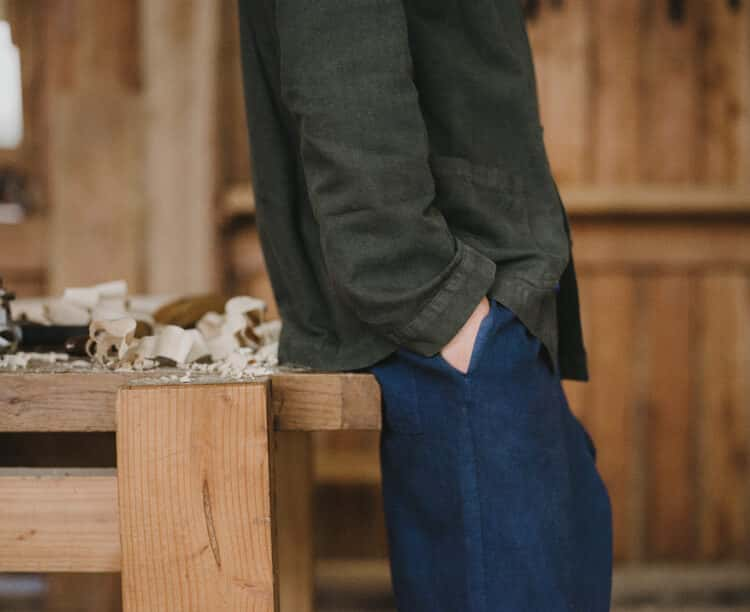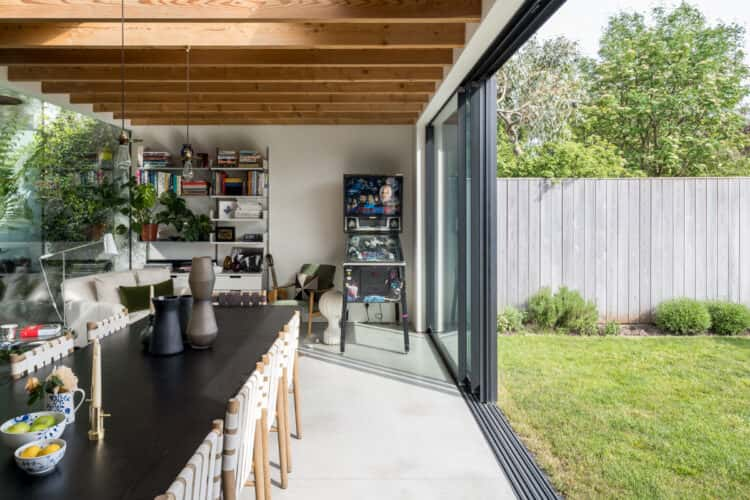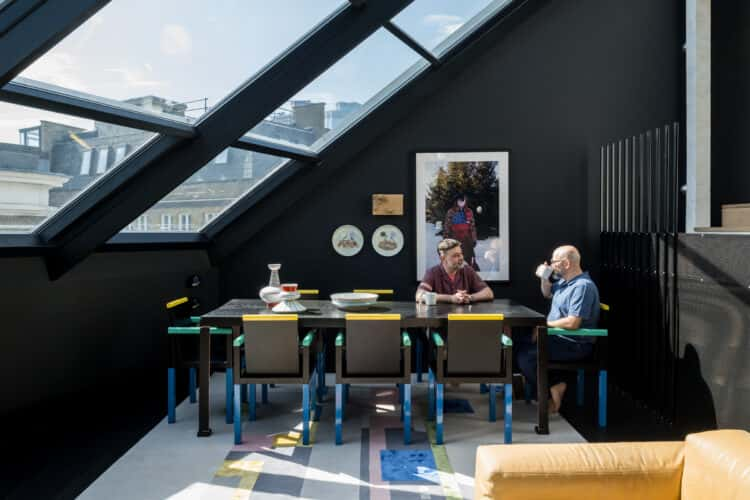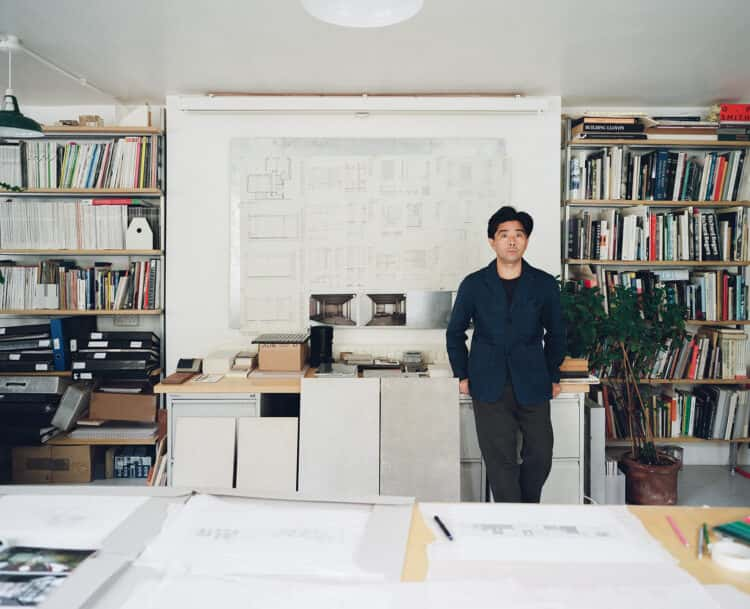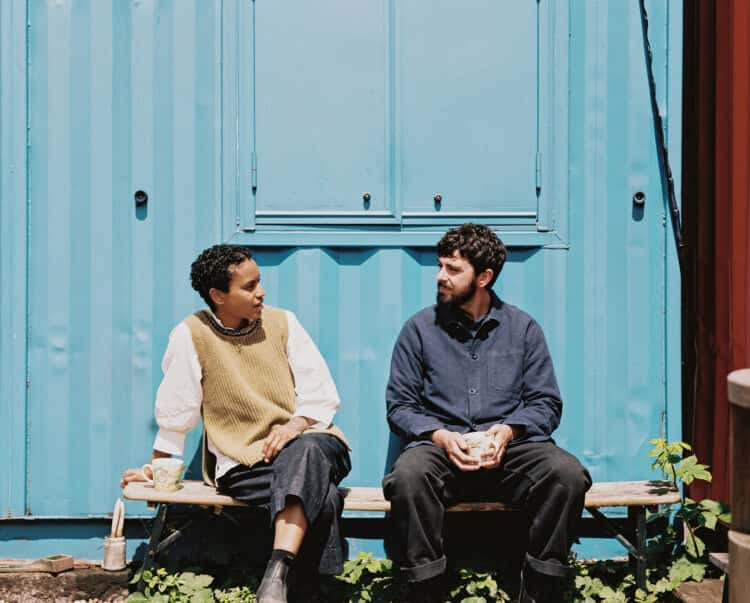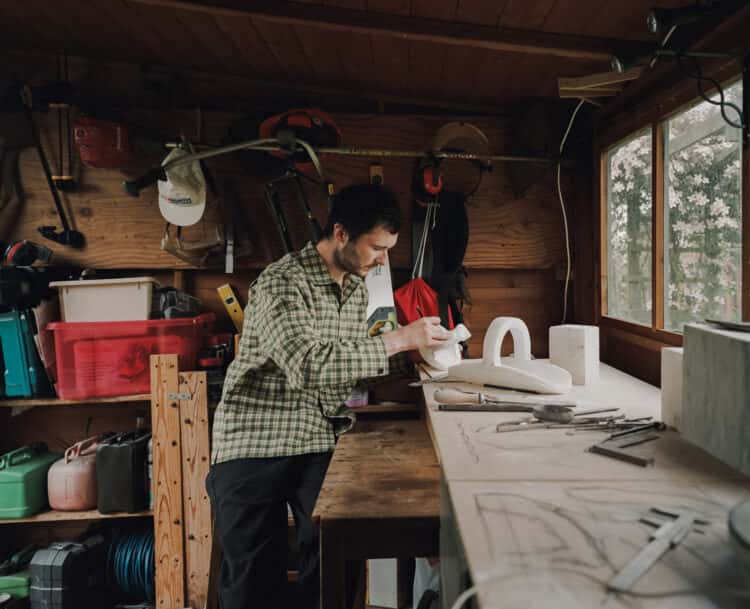Woodworker Ambrose Vevers has a deep-rooted connection with the land in Ashburton, Devon
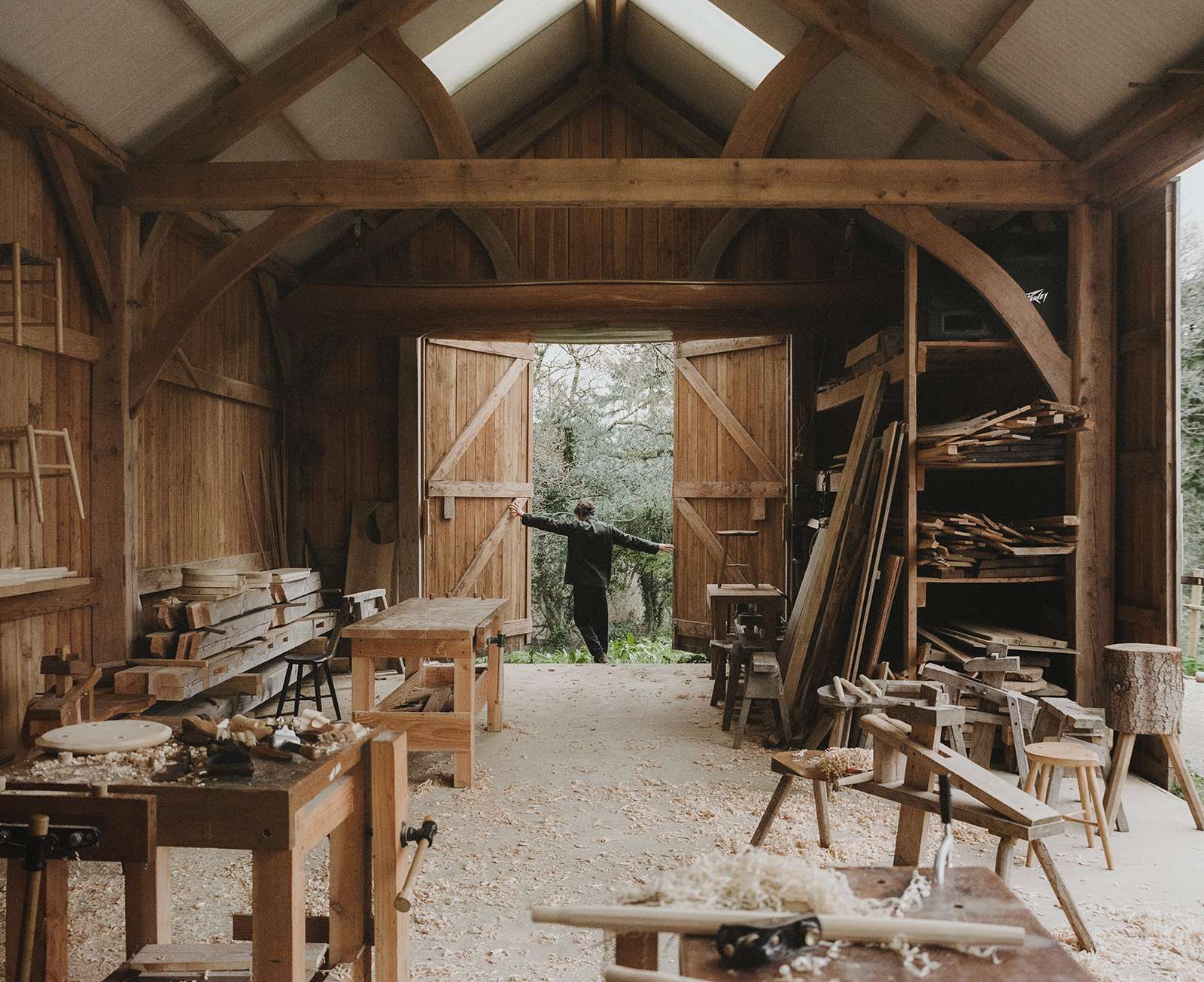
Words Billie Brand
Film Edmund Cook
Photography Elliot Sheppard
Ambrose knows the trees around him like the back of his hand. The craftsman lives and works in Ashburton, Devon, where his family have owned and nurtured more than 200 acres of land since the 1970s. Ambrose has a profound relationship to the trees that grow there –predominately ash, which is handy as it’s his preferred choice of timber. Now, the 34-year-old keeps busy in his self-built studio, which overlooks the woods that started it all, either by teaching his craft or by using traditional techniques to create contemporary furniture.
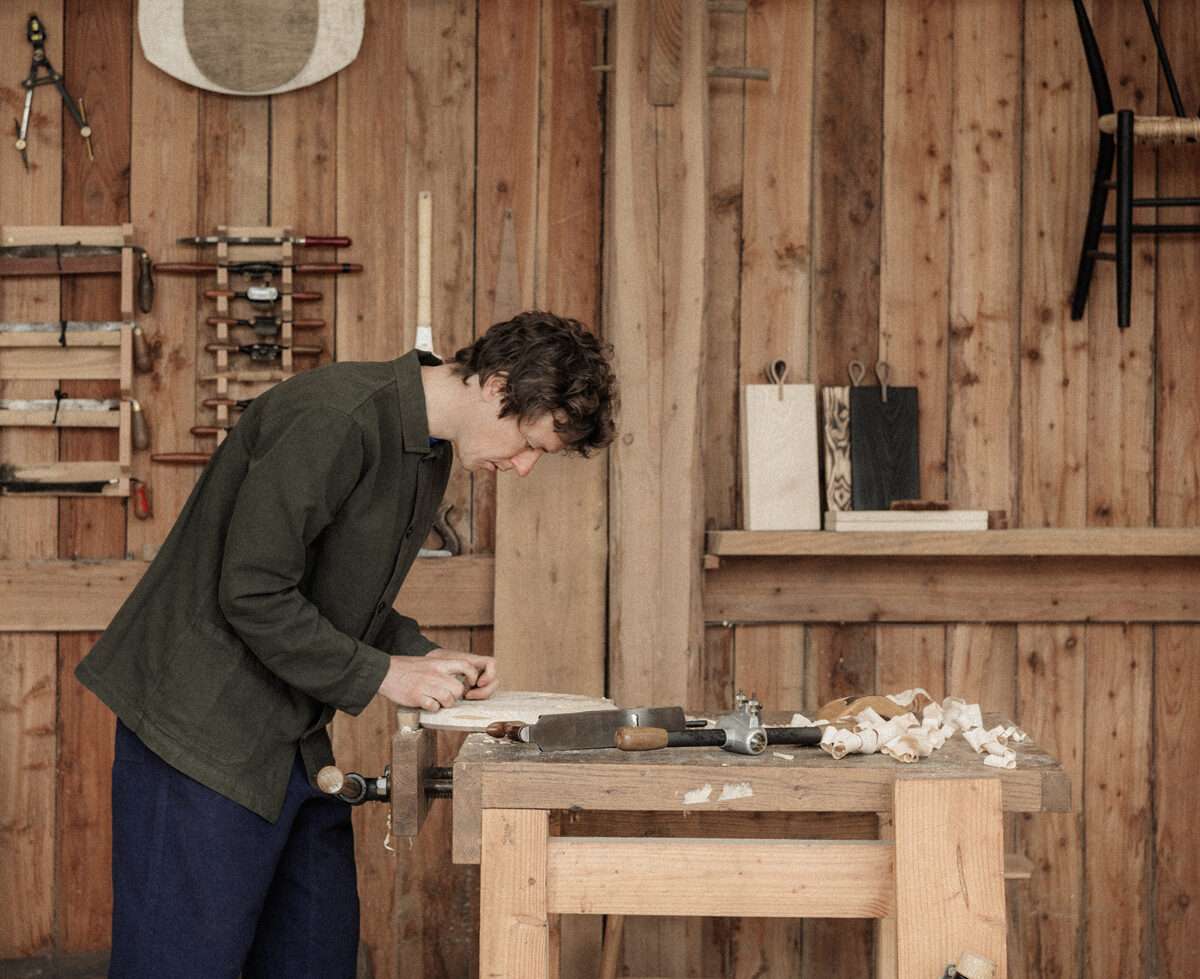
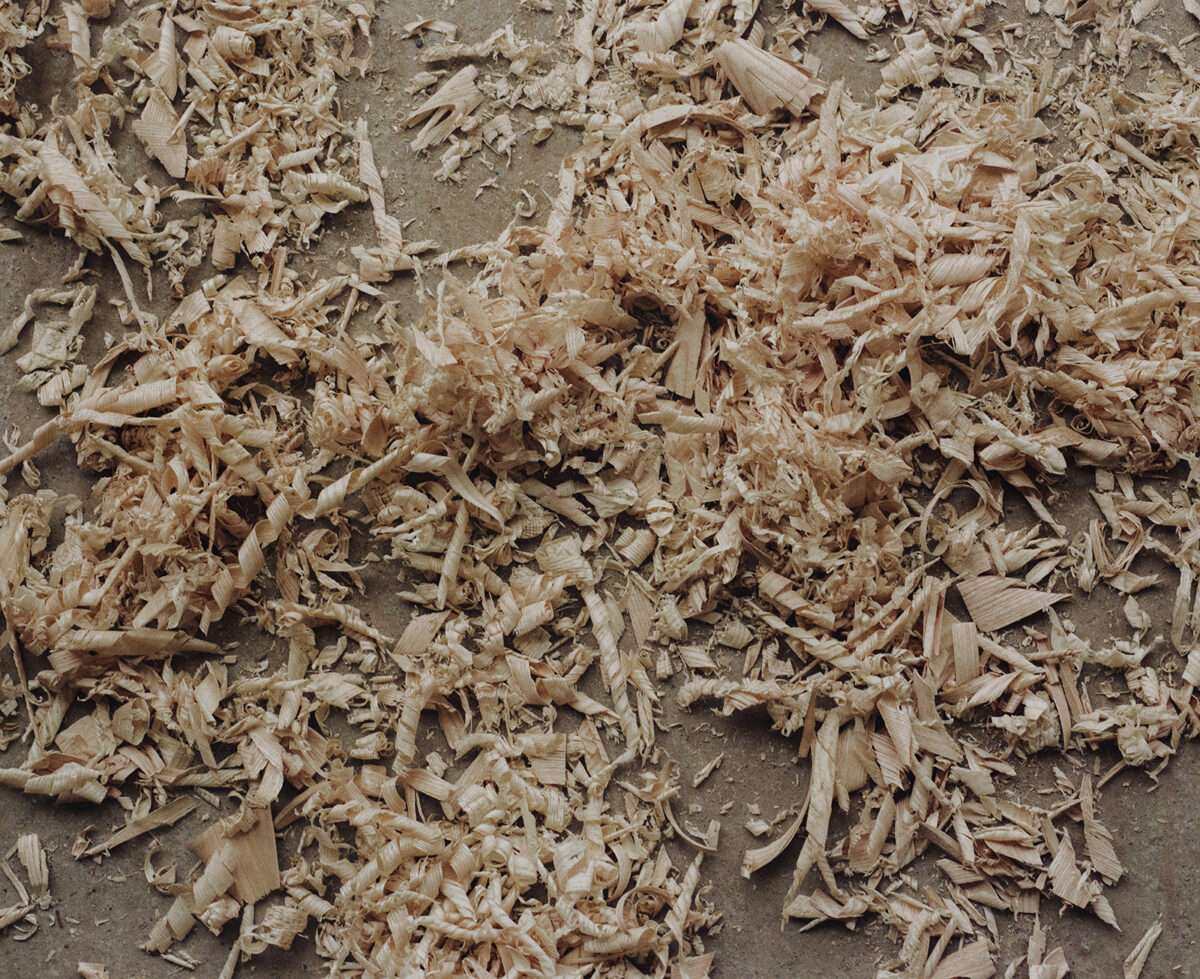
“I have a real connection with the land. My family owns the small woodlands here and I have watched the trees around me grow all my life, so they’re very special to me. As a kid, I would play in them, but now they’re where I source my materials. It’s very nourishing to see the woods being made into beautiful items to be used by other people.
“I grew up surrounded by woodworking tools, with my dad pottering around his workshop. I was always allowed to experiment too. I have never been the most academic person and I’m much better with my hands. Making three-dimensional things comes really easily to me.
“I source all the wood I use from the surrounding area. I know where every single piece comes from. I’m very hands-on at every step: I sawmill, season and dry the timber for at least two years before use. I work with the seasons too, so I’ll cut the trees down in winter and allow them to dry in summer. Then I use traditional methods to make contemporary furniture and homeware.
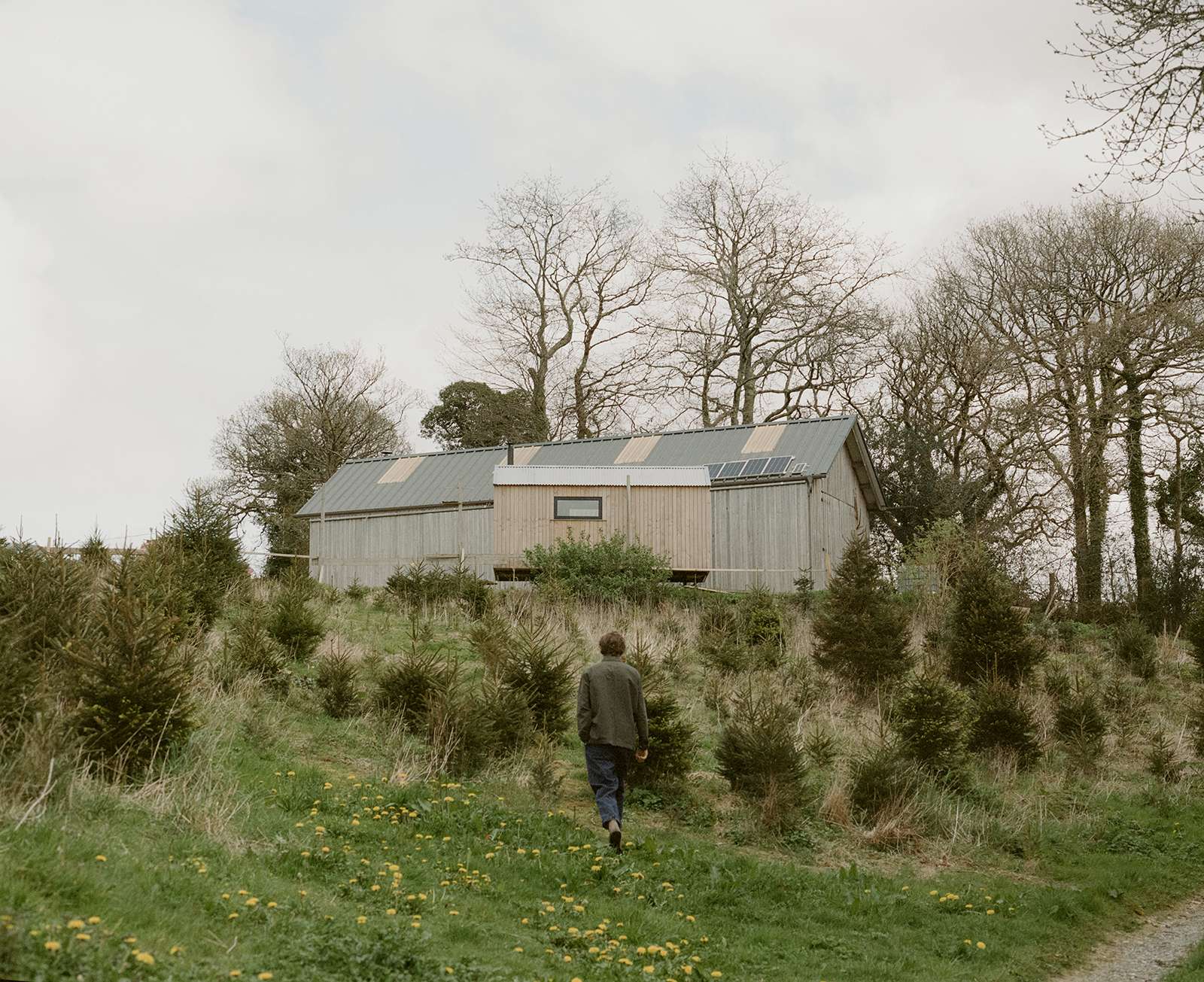
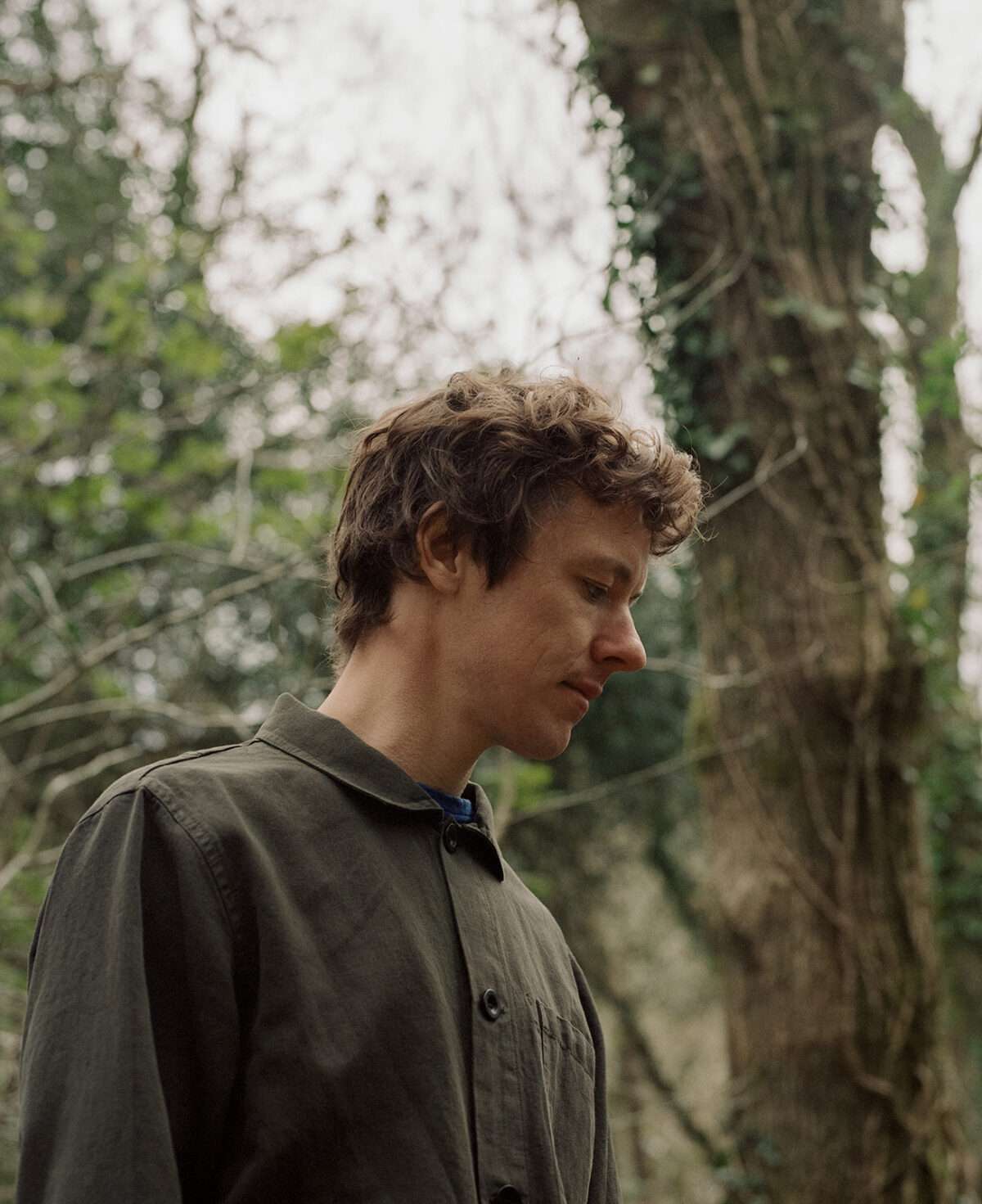
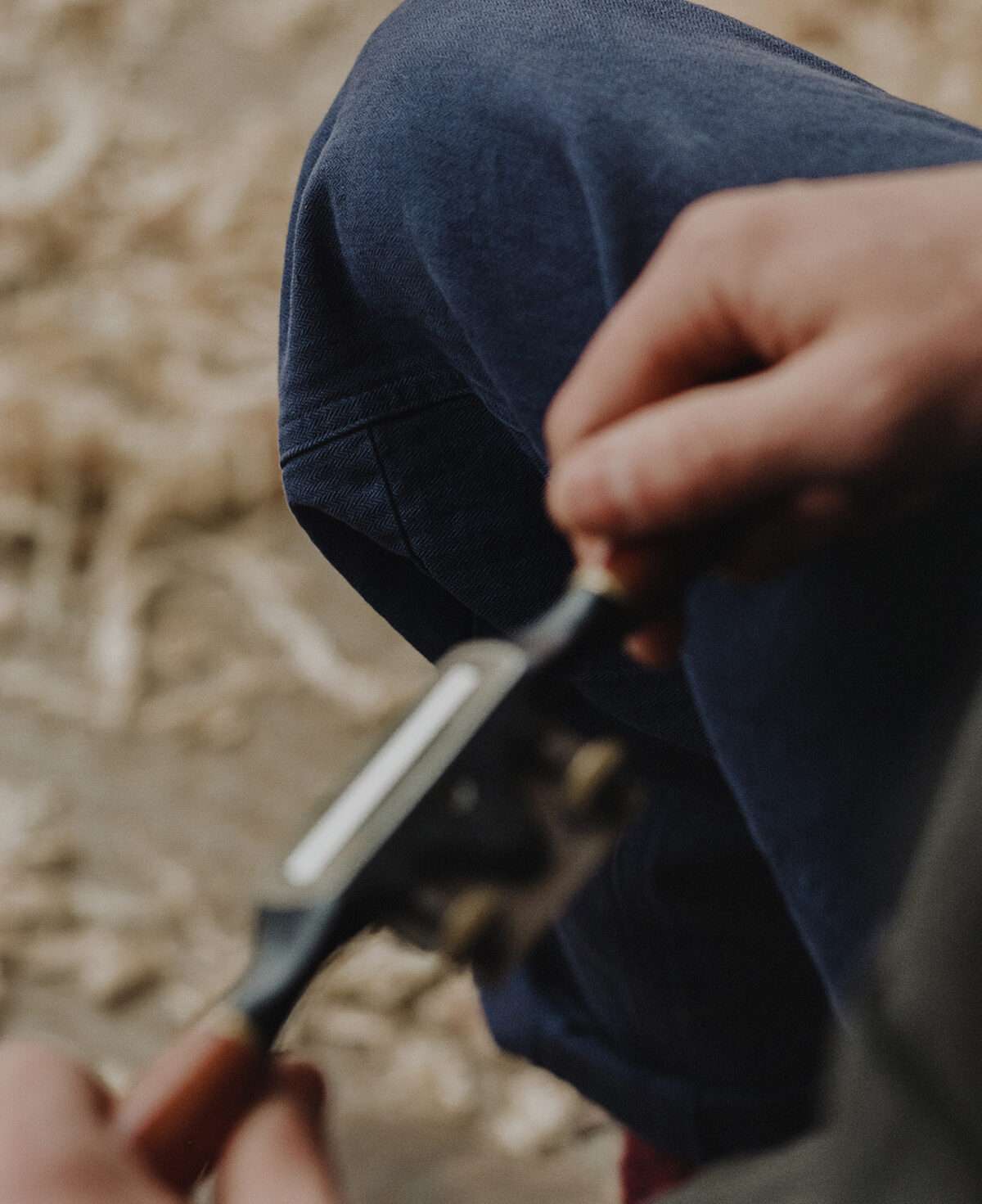
“I mainly work with ash because it’s really versatile and a great chair maker’s wood. I have loads of random chairs that I have made over the years. I think their designs are just so complex but, at the same time, there’s something about them that is quite human. We’ve evolved with chairs, haven’t we?
“I believe that a hand-finished item will age better than one done by machine. I’m really into craftsmanship; I want to make things that have a bit of soul to them. It’s more fun for me, too – working with my hands is more enjoyable than using a dusty, noisy machine. There are certain jobs that I particularly love doing by hand – for instance, anything that involves a sharp tool for finishing.
“Hand craftsmanship has its challenges too: it’s a lot more physical. You have to take breaks and your hands have to be strong because you need to grip the tools with a certain force. And it takes time: you must be well-practiced for the process to be efficient.
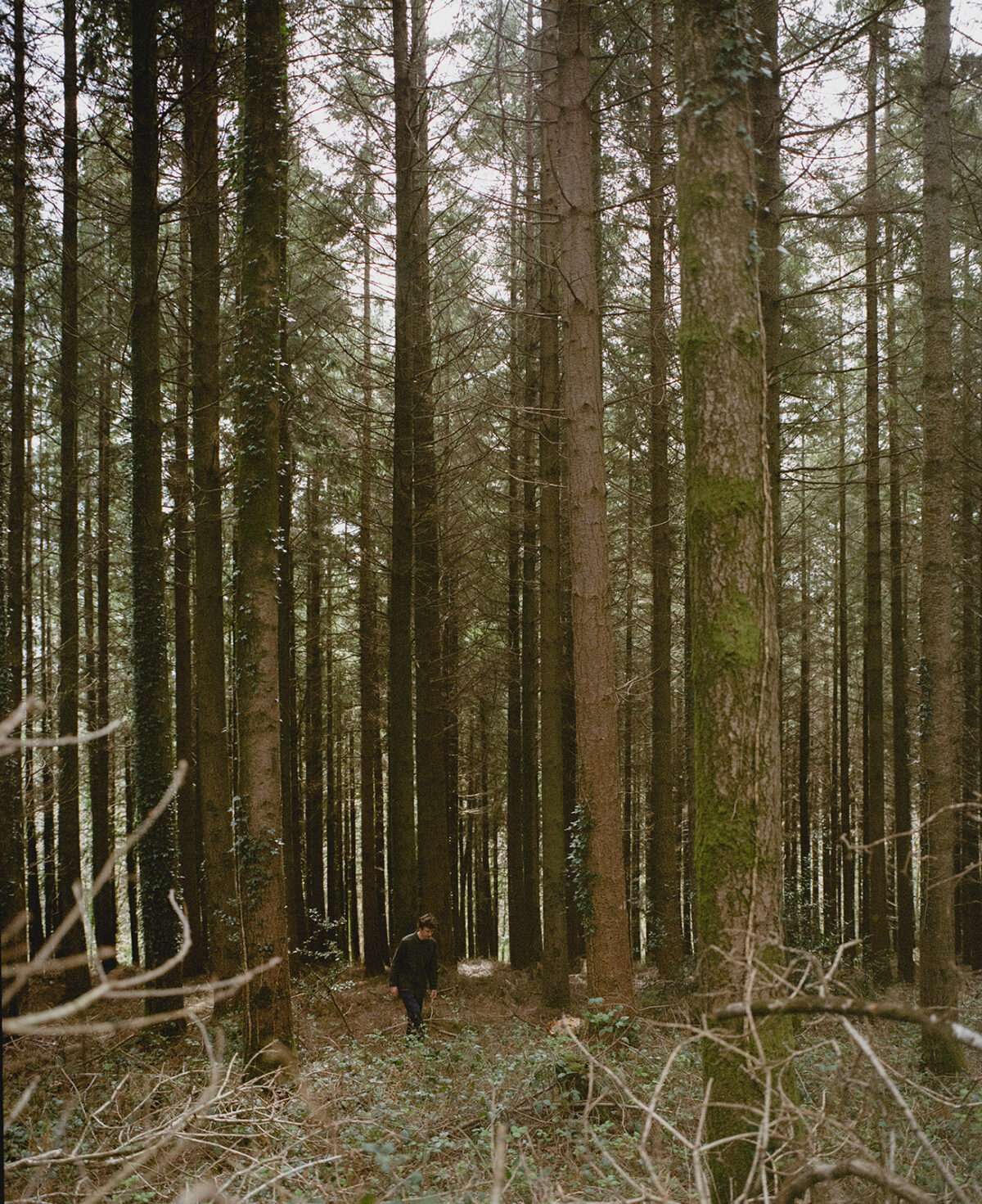
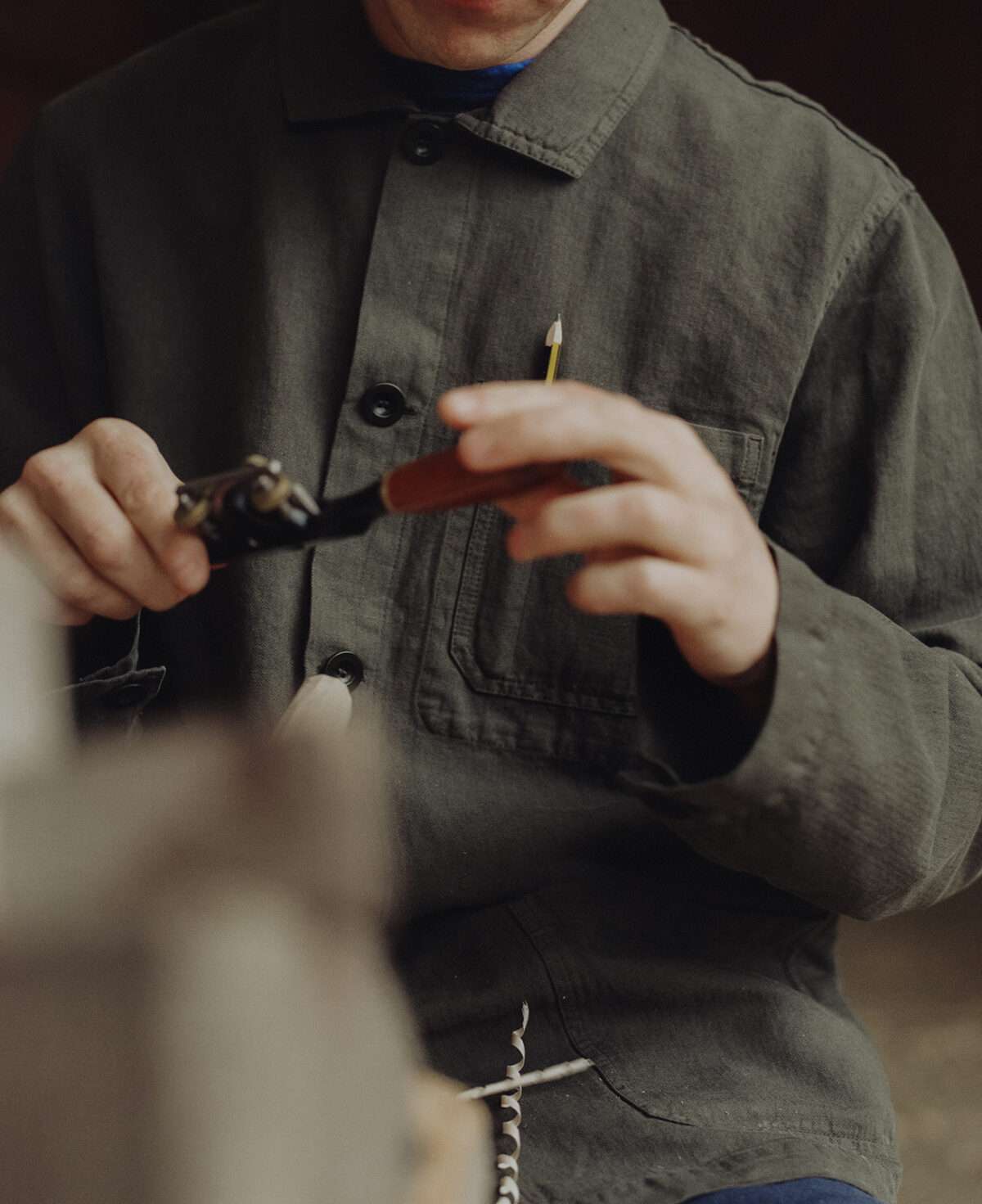
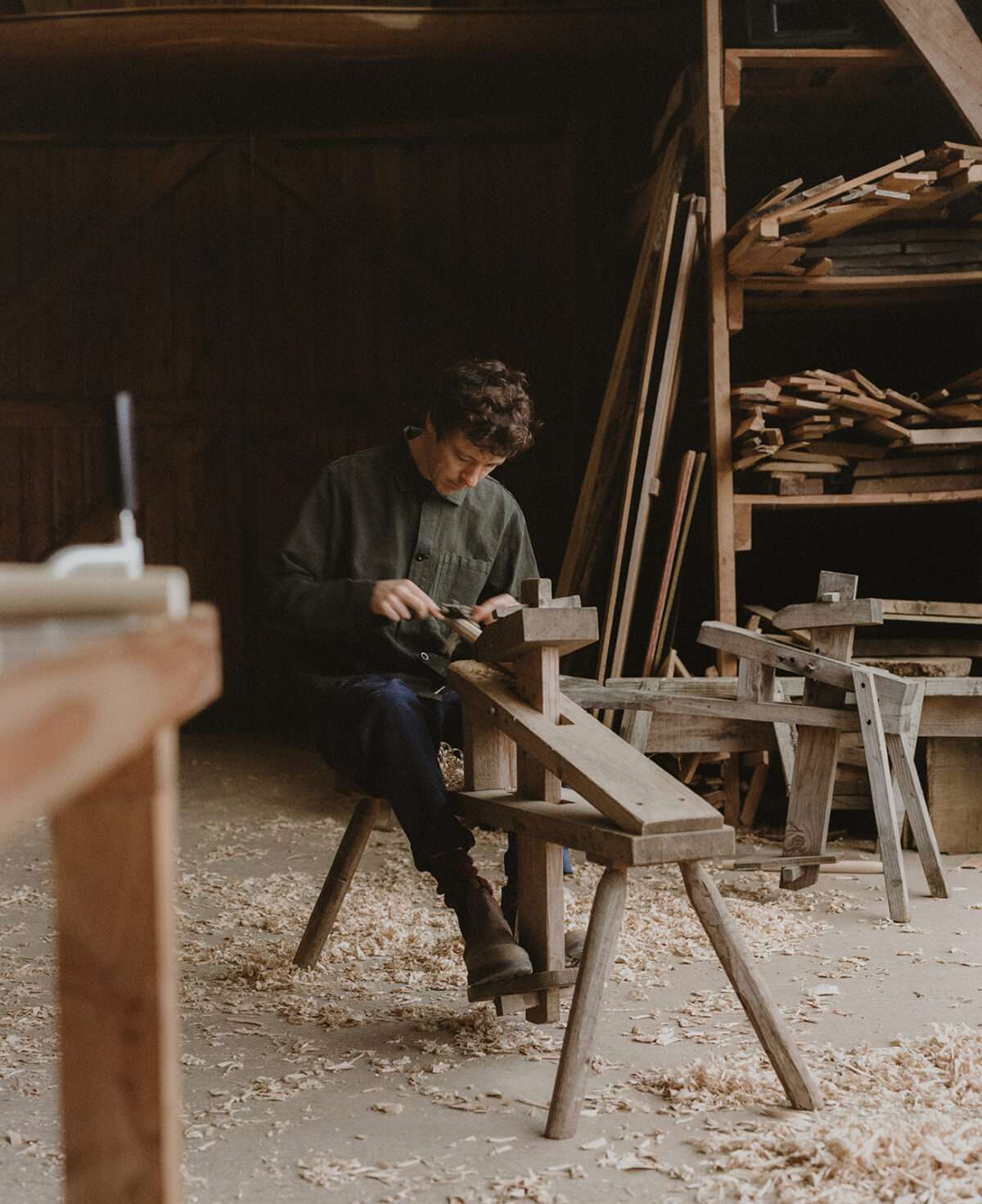
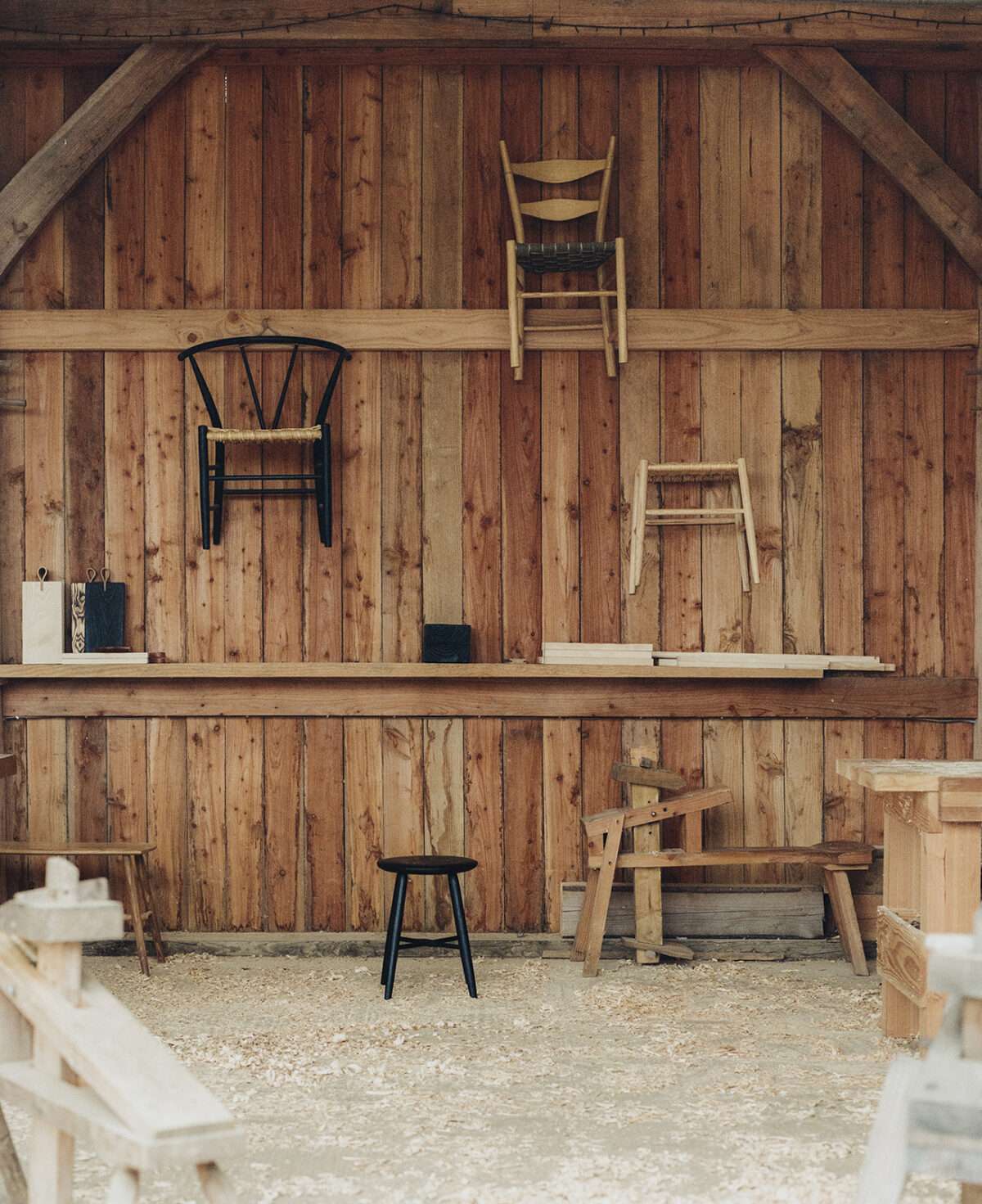
“Because I always work two years ahead, I think about the future all the time. Sustainability is really important to me, not only in terms of the materials I use. I have solar panels on my roof and I’ve said no to exporting my work abroad. Why ship my work around the world, when there are people making chairs and chopping boards in other countries?
“I built the barn where I work myself, which is also made using all my own wood. It’s not your average tractor shed. There’s a view of the woods below and the evening light that comes in is beautiful. I like to listen to music and podcasts while I work, but I do love silence as well. Because we’re in the countryside, there are no sirens; you can hear the birds tweeting. But it can get cold, so I only work there in summer. In winter, I retreat to my smaller workshop, which I grow veg right next to. The tomatoes aren’t ripe yet, but when they are, I’ll be taking them home.”
